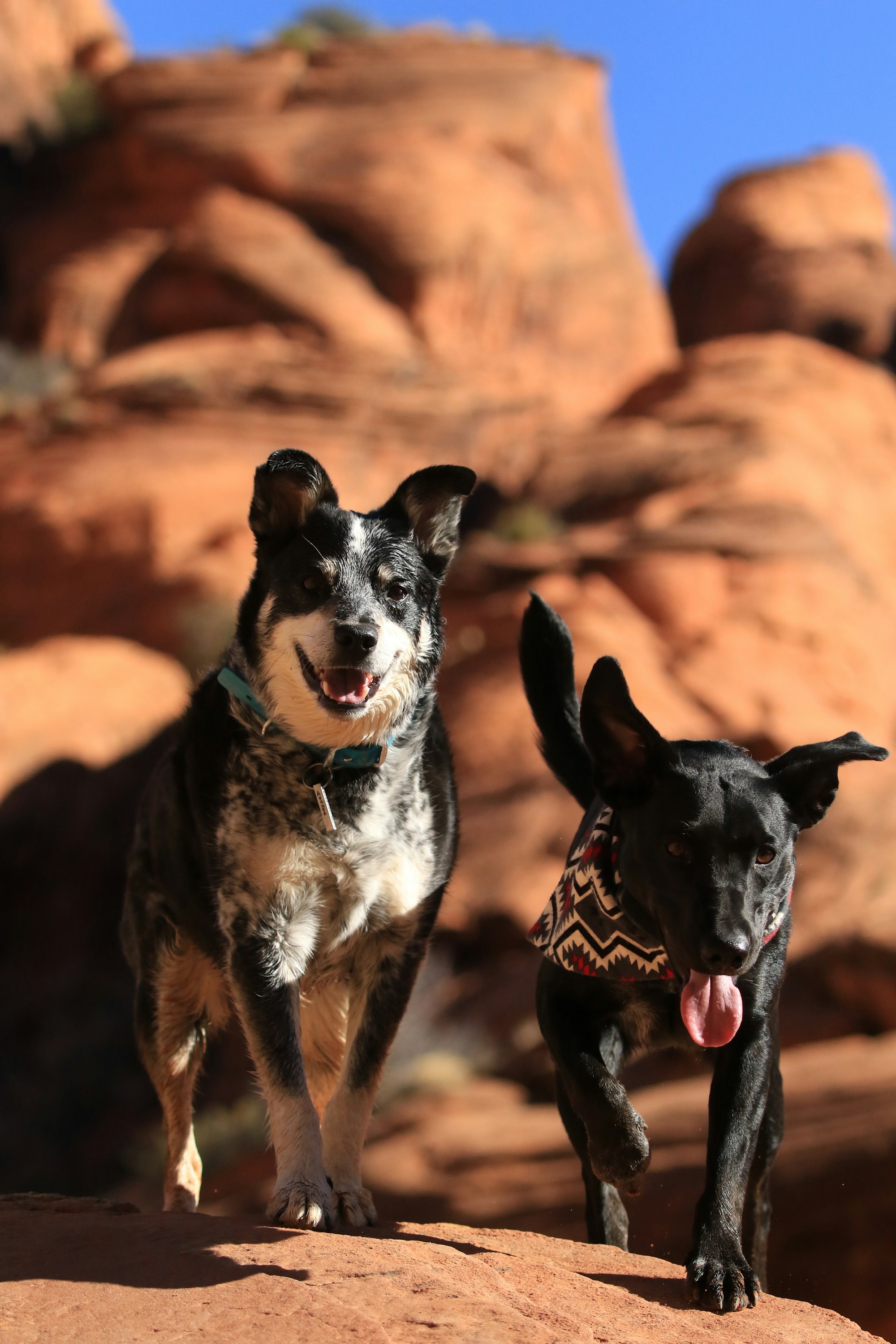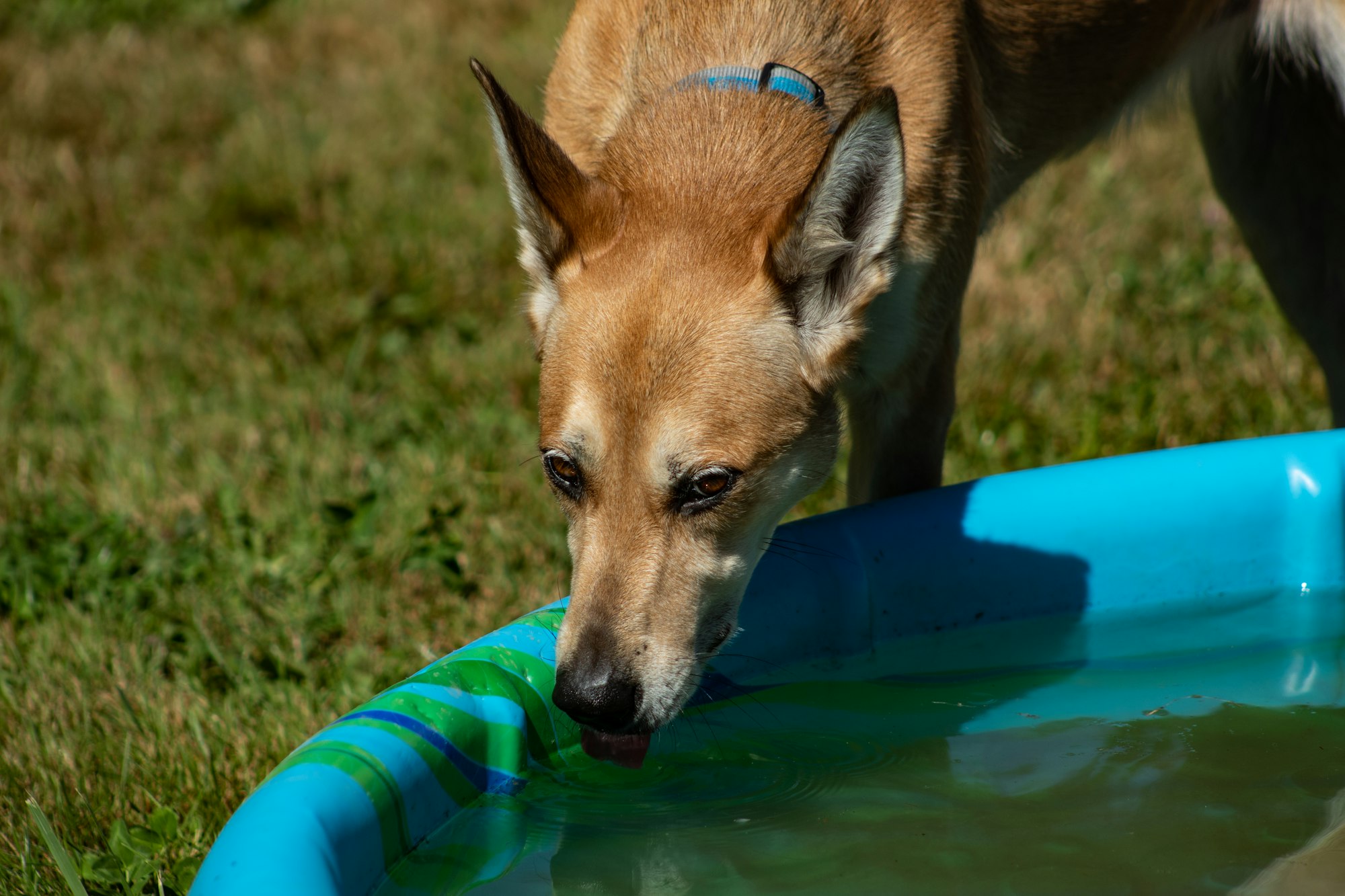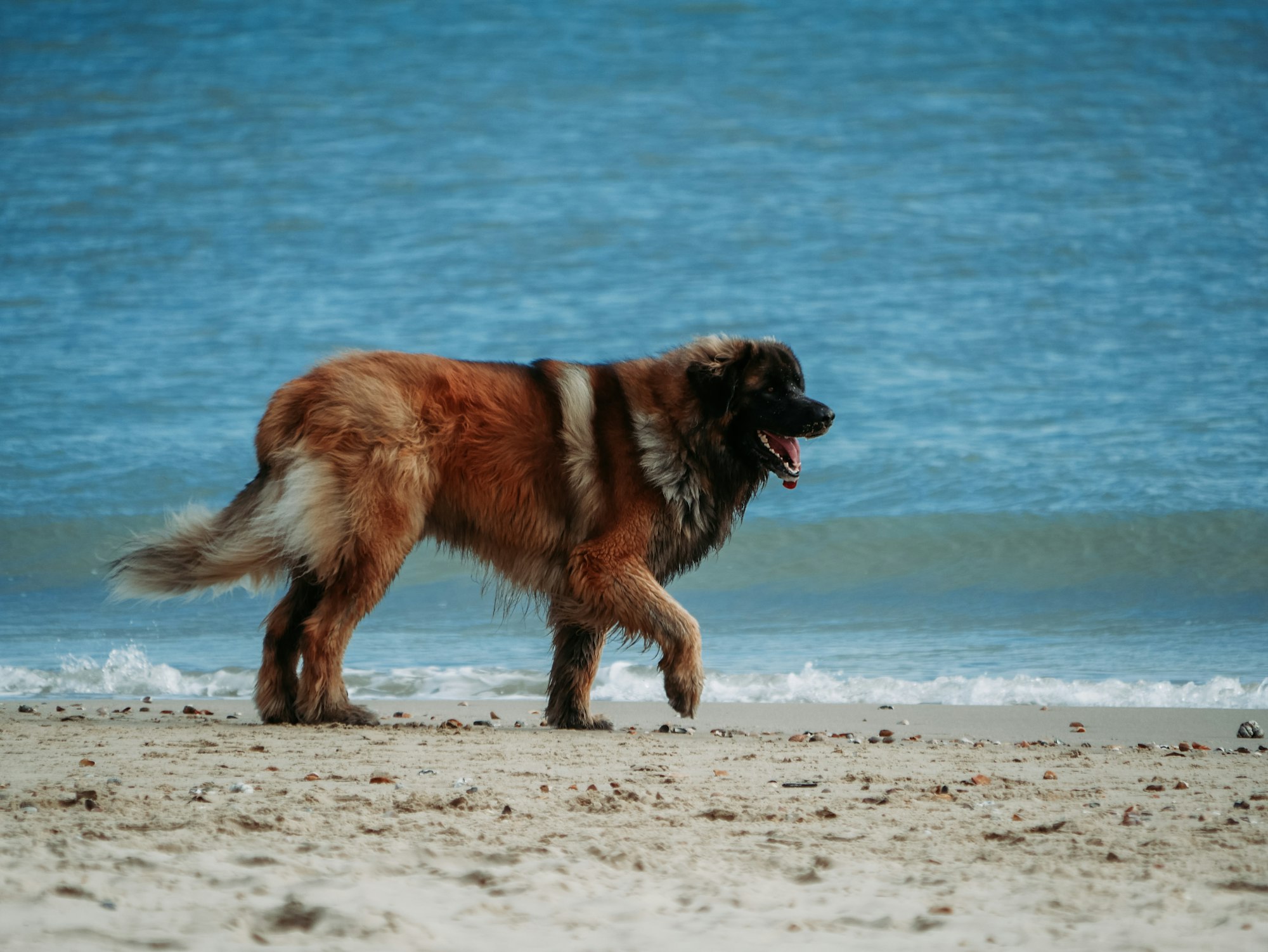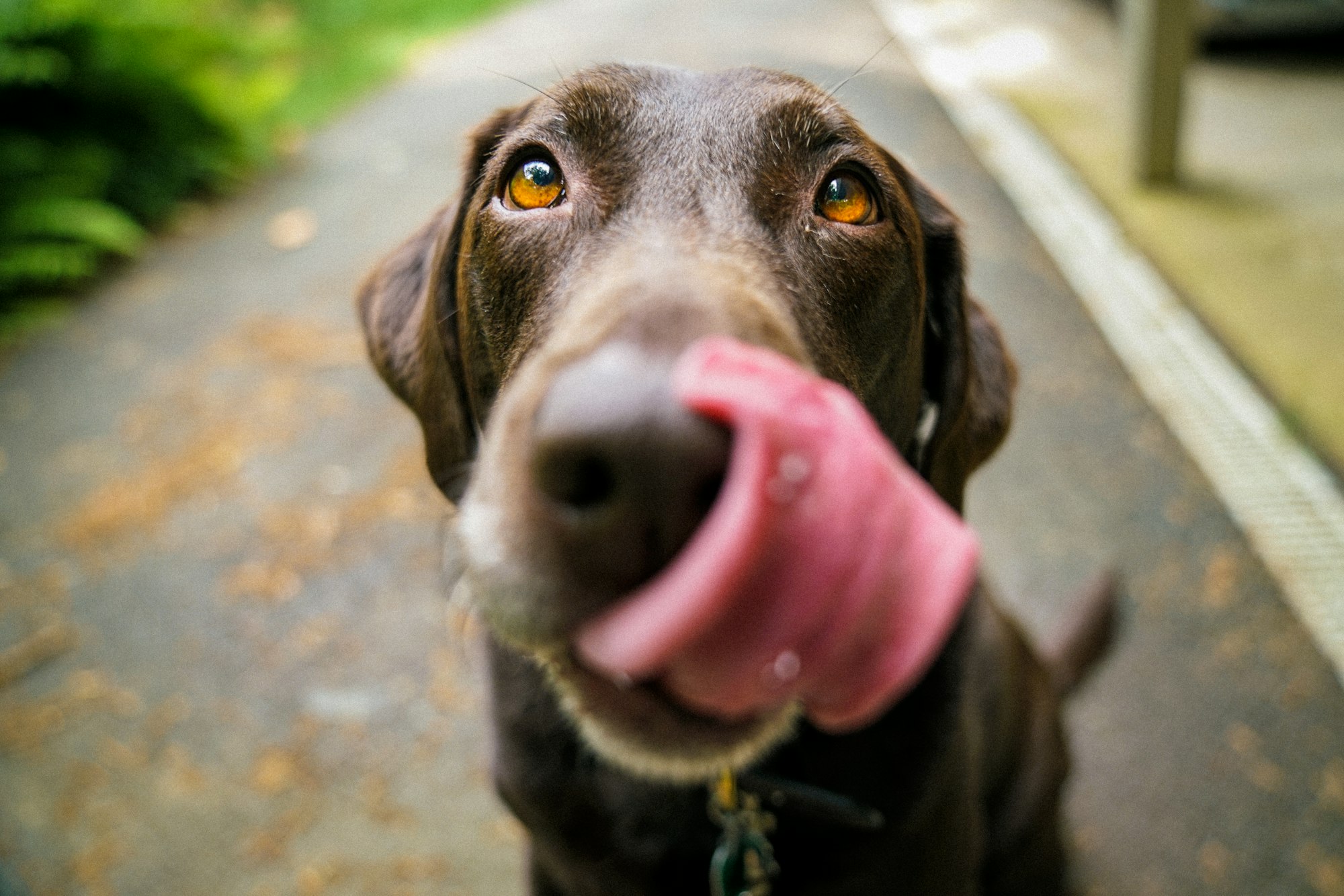As a responsible pet owner, you undoubtedly strive to provide the best care for your furry companion. While it's easy to focus on aspects like nutrition and exercise, one essential factor that shouldn't be overlooked is your dog's hydration. Adequate water intake is crucial for your canine's overall health and well-being. In this comprehensive blog post, we will delve into the importance of monitoring your dog's water intake, the signs of dehydration, tips for encouraging proper hydration, and the role of water in various aspects of your dog's health.
The Importance of Hydration for Dogs
Proper hydration is of utmost importance for the well-being of your furry friend. Here are some key points highlighting the significance of hydration for dogs:
- Body Composition: Water makes up a significant portion of a dog's body composition, accounting for about 60-70% of their total weight. This emphasizes its essential role in maintaining the overall balance and functioning of their body systems.
- Digestion and Nutrient Absorption: Adequate hydration is crucial for proper digestion and nutrient absorption. Water helps break down food, facilitates the enzymatic processes involved in digestion, and promotes the absorption of essential nutrients from the gastrointestinal tract.
- Circulation and Oxygenation: Sufficient water intake ensures proper blood circulation, allowing oxygen and nutrients to reach different organs and tissues. It also helps maintain healthy blood pressure levels and supports cardiovascular health.
- Temperature Regulation: Dogs regulate their body temperature primarily through panting. Panting releases heat from their bodies, but it can lead to excessive water loss. Sufficient hydration helps dogs regulate their body temperature effectively, especially in hot weather or during physical activity.
- Waste Removal: Adequate water intake is necessary for proper kidney function and waste removal through urine production. Water helps flush out toxins and waste products from the body, promoting optimal kidney health and preventing urinary tract issues.
- Joint Health and Mobility: Hydration plays a role in maintaining healthy joints and supporting overall mobility. Water helps lubricate the joints, cushioning them and reducing the risk of joint problems or discomfort.
- Skin and Coat Health: Proper hydration contributes to healthy skin and a lustrous coat. Water helps moisturize the skin, preventing dryness and itchiness. It also promotes hair growth and maintains coat quality and shine.
- Energy Levels and Performance: Hydration is directly linked to energy levels and overall performance. Dehydration can lead to fatigue, decreased stamina, and reduced physical and mental abilities. Keeping your dog well-hydrated ensures optimal energy levels for playtime, exercise, and daily activities.
- Preventing Dehydration: Dehydration can have serious health consequences for dogs. It can lead to organ damage, electrolyte imbalances, urinary tract issues, and even life-threatening conditions. By ensuring proper hydration, you can help prevent these risks and promote your dog's overall health and longevity.
Remember that the water needs of dogs can vary based on factors such as their size, activity level, age, and environmental conditions. Always provide fresh, clean water for your dog and monitor their water intake to ensure they stay adequately hydrated. If you have concerns about your dog's hydration or notice any signs of dehydration, consult with your veterinarian for guidance and proper care.
Recognizing the Signs of Dehydration

It is crucial for pet owners to be able to recognize the signs of dehydration in their dogs. Early identification allows for prompt action to restore hydration levels and prevent potential health complications. Here are some common indicators of dehydration in dogs:
- Dry Gums: One of the first signs of dehydration is dry and sticky gums. Normally, a dog's gums should feel moist and slick. If they appear dry or tacky to the touch, it may indicate insufficient hydration.
- Loss of Skin Elasticity: When you gently lift the skin on the back of your dog's neck or between the shoulder blades, it should quickly return to its original position. However, dehydrated dogs may have skin that lacks elasticity and takes longer to return to normal. This can be observed as a delay in the skin's recoil.
- Sunken Eyes: Dehydration can cause the eyes to appear sunken or dull. Normally, a dog's eyes should be bright and clear. Sunken eyes can be an indication that your dog is not adequately hydrated.
- Lethargy: Dehydrated dogs often exhibit a lack of energy and increased lethargy. They may appear tired, weak, or disinterested in their usual activities. If your dog seems unusually low in energy, it could be a sign of dehydration.
- Excessive Panting: Panting is a natural mechanism for dogs to cool themselves down, but excessive and prolonged panting can lead to significant water loss. If your dog is panting excessively even in cool or relaxed conditions, it may suggest dehydration.
- Reduced Urination: A decrease in urination frequency or volume can indicate dehydration. If your dog is not producing as much urine or is straining during urination, it may be a sign that they need more fluids.
- Loss of Appetite: Dehydration can cause dogs to lose interest in food and exhibit a reduced appetite. If your dog suddenly shows a lack of interest in eating or demonstrates a significant decrease in food consumption, it could be a result of dehydration.
- Thick Saliva: Dehydrated dogs may have thicker saliva than usual. This can be observed as sticky or viscous saliva, and it may indicate that your dog is not adequately hydrated.
If you notice any of these signs of dehydration in your dog, it is important to take immediate action to restore their hydration levels. Offer them fresh water and encourage them to drink. You can also provide them with water-rich foods, such as canned dog food or hydrating treats. If the symptoms persist or worsen, it is advisable to consult with your veterinarian for a proper diagnosis and treatment plan.
Prevention is key when it comes to dehydration in dogs. Ensure that your dog always has access to clean and fresh water, especially during hot weather or periods of increased physical activity. Regularly monitor their water intake and be proactive in maintaining their hydration to promote their overall health and well-being.
Factors Affecting Water Intake

The water intake of dogs can vary based on various factors. Understanding these factors is crucial for ensuring that your dog stays adequately hydrated. Here are some key factors that can affect your dog's water intake:
- Size: The size of your dog plays a role in their water needs. Generally, larger dogs require more water compared to smaller breeds. This is because larger dogs have a higher metabolic rate and a larger body mass to hydrate.
- Activity Level: Dogs that are highly active, such as those involved in agility training or running, have higher water requirements. Increased physical activity leads to greater water loss through panting and sweating, necessitating increased water intake to maintain hydration.
- Age: Puppies and senior dogs may have different water needs compared to adult dogs. Puppies are growing rapidly, and their bodies require more water for proper development. Senior dogs may have specific health conditions that affect their water intake, such as kidney disease or reduced mobility.
- Environmental Conditions: Hot and humid weather increases the risk of dehydration in dogs. Higher temperatures and excessive sweating lead to greater water loss, necessitating increased water intake to compensate. Additionally, dogs exposed to dry climates may also require more water to prevent dehydration.
- Health Status: Certain medical conditions, such as kidney disease or diabetes, can affect your dog's water intake. Dogs with these conditions may require increased or more regulated water consumption to manage their health effectively. It's important to consult with your veterinarian to determine the appropriate water intake for dogs with specific health conditions.
- Diet: The type of diet your dog consumes can impact their water intake. Dry kibble diets may require dogs to drink more water to compensate for the lack of moisture in their food. On the other hand, dogs on wet or raw diets may obtain a portion of their hydration from the food itself.
It is important to monitor your dog's water intake and make adjustments as needed. Ensure that fresh, clean water is readily available to them at all times. If you have concerns about your dog's hydration or notice any changes in their water intake patterns, consult with your veterinarian for guidance. Remember, maintaining proper hydration is essential for your dog's overall health and well-being.
Encouraging Proper Hydration
Encouraging proper hydration in your dog is essential for maintaining their health and well-being. If your dog is a picky drinker or has lower water consumption, here are some strategies to help promote adequate hydration:
- Clean and Fresh Water: Ensure that your dog always has access to clean and fresh water. Replace the water in their bowl regularly to prevent any buildup of bacteria or contaminants. Dogs are more likely to drink water that tastes and smells fresh.
- Suitable Water Bowls: Consider the type of water bowl you use for your dog. Some dogs may prefer wide and shallow bowls that don't touch their whiskers, while others may prefer deeper bowls. Experiment with different bowl types to find the one your dog prefers.
- Multiple Water Stations: Provide multiple water stations throughout your home, especially if you have a large house or multiple floors. This makes it easier for your dog to access water whenever they need it, ensuring they remain hydrated.
- Wet Food or Water-Rich Treats: Incorporate wet food or water-rich treats into your dog's diet. This can help increase their overall water intake, as these foods contain a higher moisture content compared to dry kibble. Consult with your veterinarian to ensure a balanced diet.
- Flavoring the Water: Some dogs may be enticed to drink more water if it has a hint of flavor. You can add a small amount of low-sodium chicken broth or diluted fruit juice to their water bowl to make it more appealing. However, be mindful of any additives you use and ensure they are safe for dogs.
- Water during Playtime: Incorporate water into your dog's playtime activities. For example, you can use a sprinkler or a small pool to create a fun water play area for your dog. This not only helps them cool down during hot weather but also encourages them to drink water while having fun.
- Monitor Water Intake: Keep an eye on your dog's water consumption habits. If you notice they are not drinking enough water, try different strategies to encourage them. Conversely, excessive water intake can be a sign of underlying health issues, so consult with your veterinarian if you observe abnormal drinking patterns.
Remember, every dog is unique, and their preferences may vary. Be patient and try different approaches to find what works best for your dog. Ensuring proper hydration is crucial for their overall health and well-being, so make it a priority in their daily routine.
Dog Drink Water and Health
Water is not just a thirst quencher for dogs; it plays a vital role in their overall health. Here's how water impacts various aspects of canine well-being:
- Digestion: Water is crucial for proper digestion in dogs. It helps break down food, aids in the absorption of nutrients, and facilitates the movement of food through the gastrointestinal tract. Insufficient water intake can lead to digestive issues such as constipation or bloating.
- Kidney Function: Adequate hydration is essential for optimal kidney function in dogs. Water helps filter waste products from the blood, allowing the kidneys to eliminate toxins through urine. Insufficient water intake can contribute to the formation of kidney stones or urinary tract infections.
- Joint Health: Water plays a role in maintaining healthy joints in dogs. It helps lubricate the joints, cushioning them and reducing friction. Sufficient hydration can aid in preventing conditions such as arthritis and promote better mobility and comfort.
- Coat Condition: Hydration has a direct impact on the health and appearance of a dog's coat. Well-hydrated dogs tend to have shinier, softer, and healthier coats. Water keeps the skin hydrated, preventing dryness and itchiness, and promotes overall coat health.
- Urinary Tract Health: Dogs that are adequately hydrated have a lower risk of developing urinary tract issues such as urinary tract infections or bladder stones. Sufficient water intake helps dilute urine, flushing out bacteria and preventing the formation of crystals or stones.
- Regulation of Body Temperature: Water is essential for dogs to regulate their body temperature, especially in hot weather or during physical activity. Panting is a natural cooling mechanism for dogs, but excessive panting can lead to dehydration. Adequate hydration helps dogs regulate their body temperature effectively.
- Detoxification: Water is essential for the detoxification process in a dog's body. It helps eliminate waste products and toxins through urine and supports the liver's function in removing harmful substances. Sufficient water intake aids in overall detoxification and keeps the body healthy.
Encouraging your dog to drink water regularly is crucial for maintaining their overall health. Ensure that clean and fresh water is always available to them. You can also promote water consumption by incorporating wet food into their diet or using water-rich treats.
Additionally, monitoring your dog's water intake and being aware of any changes in their drinking habits is important. If you notice a significant decrease in water consumption or any signs of dehydration, consult with your veterinarian for proper guidance.
Remember, a well-hydrated dog is a healthier dog. Make drinking water a habit for your canine companion to support their overall well-being and longevity.
Special Considerations: Hydration for Active Dogs, Senior Dogs, and During Hot Weather

Proper hydration is especially important for active dogs, senior dogs, and during hot weather. Here are some special considerations and tips to ensure your dog remains well-hydrated in these circumstances:
For Active Dogs:
Increased Water Intake: Active dogs engage in more physical exertion, leading to higher water loss through panting and sweating. Encourage your dog to drink more water before, during, and after exercise or play sessions.
Portable Water: Carry a collapsible water bowl and a bottle of fresh water when you take your dog for walks, hikes, or any outdoor activities. This ensures that water is readily available to them wherever you go.
Water Breaks: Take regular water breaks during extended periods of activity. Allow your dog to rest and provide them with access to water to prevent dehydration.
For Senior Dogs:
Encourage Drinking: Older dogs may have a reduced thirst drive, making it important to encourage water intake. Offer fresh water in easily accessible locations throughout the house.
Wet Food or Moistened Kibble: Adding water to your senior dog's food can help increase their overall water consumption. Consider feeding them wet food or moistened kibble to ensure they receive adequate hydration.
Hot Weather:
Shade and Fresh Water: During hot weather, provide your dog with plenty of shade and a constant supply of fresh, cool water. Ensure that the water bowl is placed in a shaded area to prevent it from becoming too hot.
Indoor Activities: Limit your dog's outdoor activities during the hottest parts of the day. Instead, engage them in indoor games or interactive toys that keep them mentally stimulated while reducing the risk of overheating.
Cooling Accessories: Consider using cooling accessories such as cooling mats, bandanas, or vests. These can help regulate your dog's body temperature and keep them more comfortable during hot weather.
When to Seek Veterinary Care
When it comes to your dog's hydration, there are instances where it is important to seek veterinary care. Here are some situations in which contacting your veterinarian is necessary:
- Persistent Dehydration: If your dog consistently shows signs of dehydration despite your efforts to encourage water intake, it could indicate an underlying health issue that needs to be addressed by a veterinarian.
- Sudden Changes in Water Intake: A significant increase or decrease in your dog's water consumption may be a cause for concern. It could be a symptom of an underlying medical condition that requires professional evaluation.
- Lethargy and Weakness: If your dog appears excessively tired, weak, or unresponsive, it could be a sign of dehydration or a more serious health issue. Prompt veterinary attention is crucial in such cases.
- Vomiting or Diarrhea: Dogs experiencing persistent vomiting or diarrhea can quickly become dehydrated. If these symptoms persist or are accompanied by other concerning signs, it's important to seek veterinary care.
- Changes in Urination: Pay attention to any changes in your dog's urination habits, such as increased frequency, reduced output, or the presence of blood. These could be indications of an underlying urinary tract infection or kidney problem.
- Other Concerning Symptoms: If your dog shows any unusual or concerning symptoms along with dehydration, such as excessive panting, difficulty breathing, pale gums, or disorientation, it is important to consult with a veterinarian.
Remember, your veterinarian is the best resource for diagnosing and treating any potential health issues your dog may be experiencing. If you have any concerns about your dog's hydration or overall well-being, don't hesitate to reach out to your veterinarian for proper guidance and care.
Proper hydration is crucial for your dog's health, and seeking veterinary care when necessary ensures that any underlying medical conditions are addressed promptly and appropriately.
Conclusion
Keeping a watchful eye on your dog's water intake is vital for their overall health and well-being. Proper hydration plays a fundamental role in various bodily functions and helps prevent dehydration-related complications. By understanding the importance of water for your canine companion, recognizing signs of dehydration, and implementing strategies to encourage proper hydration, you can ensure their health and happiness. Remember, a well-hydrated dog is a healthy dog, so make their water intake a priority in your pet care routine. Stay vigilant, provide fresh water, and monitor their drinking habits to keep them happy, hydrated, and thriving for years to come.






